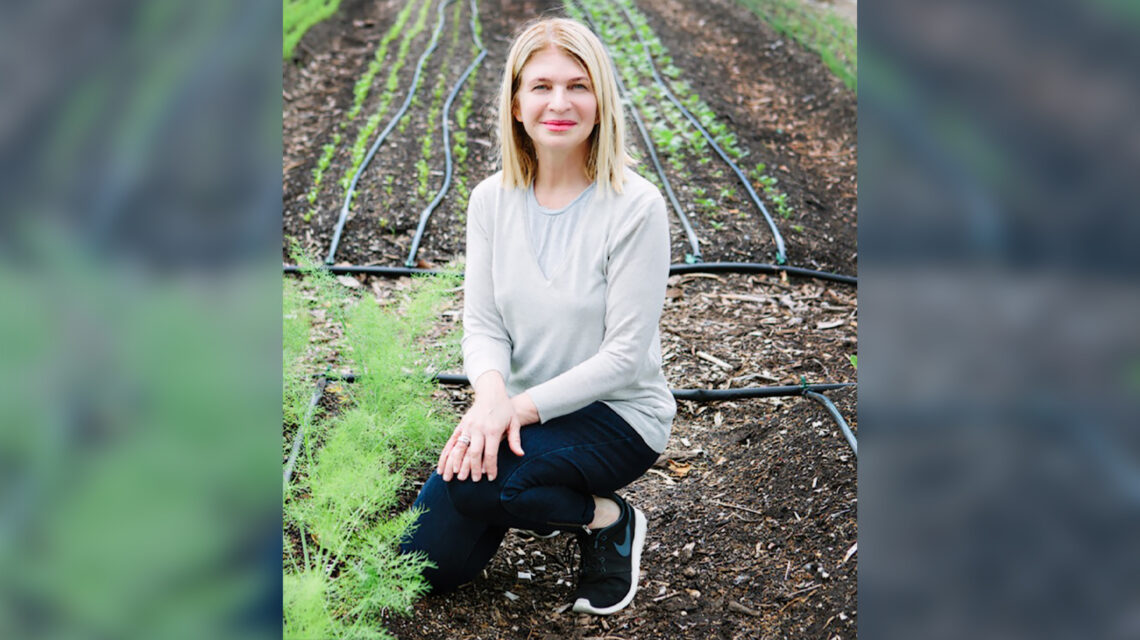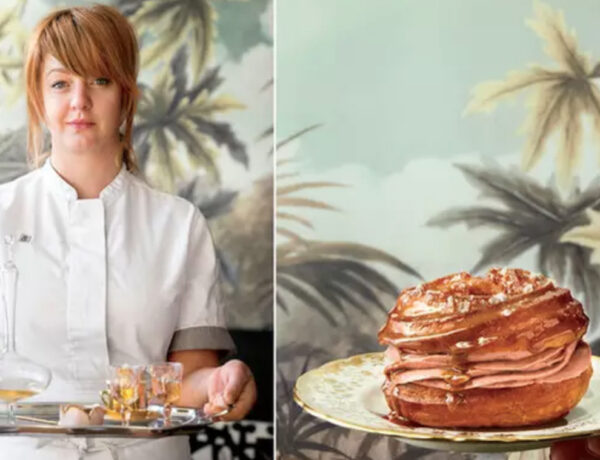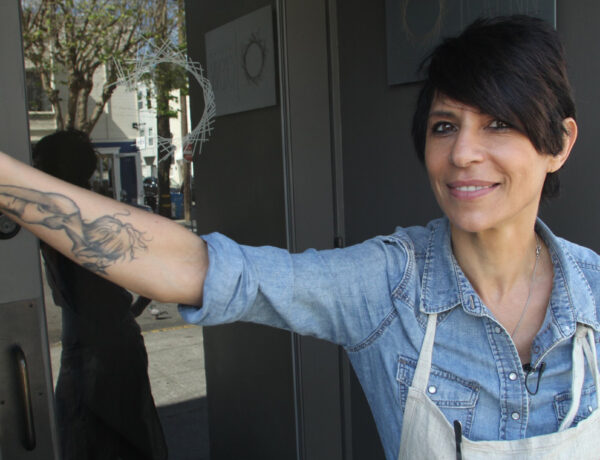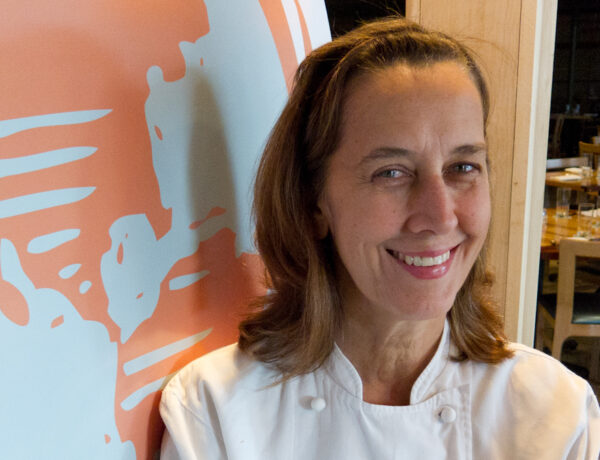When it comes to people making change in the foodservice industry, you needn’t look further than Martha Hoover. A former sex crimes prosecutor, Patachou Inc. owner Martha Hoover has spent the last 30 years building a culinary empire in Indianapolis. With more than a dozen restaurants under her belt, Martha has worked tirelessly to build a healthy, empowering culture in her restaurants. In 2013, she created the Patachou Foundation to feed healthy meals to food-insecure children in Indianapolis. The Foundation started small, adhered to smart growth strategies and made an impact. The goal for Patachou Inc. is a radically better and radically different organization. When the COVID-19 pandemic hit, the Patachou Foundation doubled down on its commitment “to kids and food that they love” promising to continue its “long-standing partnerships while creating new opportunities to serve high-quality meals directly to kids and families.”
Can you tell us a little about yourself and how you got started in the foodservice industry?
I came into the food industry 30 years ago having never worked in a restaurant in any shape or form. On top of this, when I first opened the restaurant I didn’t know I was pregnant with my third child. It was 1989 and there were two big things that were against me. First was the fact that no one was talking about neighborhood redevelopment. Second, there wasn’t even a language to speak about misogyny in the restaurant industry and address the patriarchy standards. All of this mixed together should have been a complete recipe for disaster, but it was because of this that it succeeded. I didn’t follow any template because I didn’t know such thing existed, and if I had ever worked in a restaurant before I would have probably been turned off completely by working/owning a restaurant.
There wasn’t even a language to speak about misogyny in the restaurant industry and address the patriarchy standards. All of this mixed together should have been a complete recipe for disaster, but it was because of this that it succeeded.
Do you think your experience as a sex crimes prosecutor helped you in your foodservice career? It’s sad to say, but there are some similarities in both industries. Do you think being a prosecutor empowered you and gave you confidence in the foodservice industry?
Having worked in sex crimes and now owning my own restaurant as a woman shows that it really is true that everything comes full circle. Sex crime experience gave me remarkable confidence, autonomy and authority. Unfortunately, both careers have similarities when you speak about levels of abuse, but it is not always physical.
You’ve mentioned that because you are a woman, people did not take you seriously when you were about to open your first restaurant. That was 30 years ago, yet many females are still experiencing the same issues. Does that surprise you? What advice would you give to women who are facing similar challenges?
It wasn’t until recently that I began to be taken seriously as a business person. For the first 20 years of my business, it seemed to others like what I was doing was a hobby because I had a husband with a “real” job. I was not taken seriously as a business person until I began expanding the footprint of my business, when my voice and the voice of my company became louder in the community and people began to think, “Wait a minute, this is a force.”
As a 65-year-old woman, I can tell you that I have always been rebellious enough to not care about what others thought and that saved me. I never needed recognition from other chefs or restaurants. I was building great, loyal clientele and that was who I cared about, that and my staff.
Women know that they are being “cock-blocked” and that their access to opportunity is limited. But this does not just apply to women, but also to people of color, or anyone who was ever was truly marginalized.
My advice is that we should not expect less. You should expect to work for companies that have healthy non-toxic cultures, and that should be a basic expectation as well as non-negotiable. We have a benefit, which is that we are not correcting a culture: Our culture has always been healthy and open. It is important to realize that you can treat people and your community correctly and still be profitable. All these excuses people put up with at work are ridiculous. People used to not have a voice, but now we do and we should exercise that.
With the current landscape, do you think chefs and restaurant owners have a greater responsibility in their roles? What would you like to see change in this industry?
Absolutely, anyone that is in a position of power, whatever it is, has an ability to make the culture of their company to be a certain way. You are the one person who is dictating what your culture is supposed to be like. I would really like for media and customers to empower and support restaurants that are doing things correctly. I’m sure we would see some very superficial changes, and they will milk that but their organization will not be truly connected; it takes a lot more for that to happen. That is the difference between diversity and inclusivity. Our society looks very different than it did 30–40 years ago, and that is due to diversity.
It is critical that diverse people have access to power, opportunity and information. Bottom line is that it is better for business.
I was always told that restaurant management was “babysitting for adults,” but I never understood these definitions that limit people. If you were to just let people show you what they’re made of, they’ll show you some good stuff.
The Patachou Foundation has created real, sustainable change and empowered so many people. Was this always part of your dream? Or did your environment influence and shift how you approached the industry?
No, it wasn’t always part of my dream. The definition of generosity has changed since my company has grown and become more profitable. Years ago, I became acutely aware of an issue in my own city, which led to the Patachou Foundation. I believe that the philanthropy side of restaurants could be larger, we could be doing more. It’s weird to call myself authentic, but I do have zero trouble saying what is on my mind. The bonus of creating your own business is creating the business you want. I wanted a business that had positive value without only thinking about the bottom line. That is always a reward within itself and makes me feel very empowered. My business has, since Day One, treated people correctly by being resourceful, transparent and honest.
You are credited with shaping the dining scene of Indianapolis and building a food culture that supports the local community. With more than a dozen successful restaurants under your belt, what would you say is the secret to your success? What have been some of your most valuable learnings over the years?

My most valuable learnings over the years are that people respond really well. It doesn’t matter when you walk into the restaurant: Everyone that works for me has their own set of aspirations and dreams. They come to work so early in the morning, around 400 people total, and we don’t even know how many people are dependent on their success. When you think about their aspiration for their own and the fact that you are a part of that, that is very uplifting. They also make my dreams come true, and I feel like I owe them something. It has empowered my business. I have had the same dishwashers work for me for 20 years now because everyone has pride and a place to work in with an environment that gives you support. Every aspect of our company needs to be healthy for all of us to be healthy, meaning your employees are happy and satisfied. You can feel it when you go into a store, you know immediately what the company culture is.
What does being a female in the foodservice industry mean to you?
For years, I fought being treated differently because I came from a legal environment where 25% of students are female, and I thought there is really no difference. I brought that ideal with me to my restaurant, that it does not matter. There is a false narrative, but we should focus on how to make men less toxic and make them more feminist. The other day I was speaking to a vendor of ours who was complaining and I asked if there was anything that we could do to help and he said to me, “You know, you don’t realize that there’s a lot of hostility in this community about you and your success.” I couldn’t believe it… hasn’t the expiration date for that come and gone. It’s them not understanding their own inherent bias.
Culture of empathy is one of the most critical things missing in most work places, and that doesn’t allow you to see your own inherent biases.
We love to do inherent bias training with everyone in the workplace; it’s a requirement at my restaurant. It’s incredibly validating when people are happy with their experience because a restaurant is so much more than somewhere to get a meal, it’s a hub of community and a hub of activity.
If you’re interested in learning more about the Patachou Foundation and how you can get involved, visit thepatachoufoundation.org. To learn more about Martha Hoover and Patachou Inc., visit patachouinc.com.





